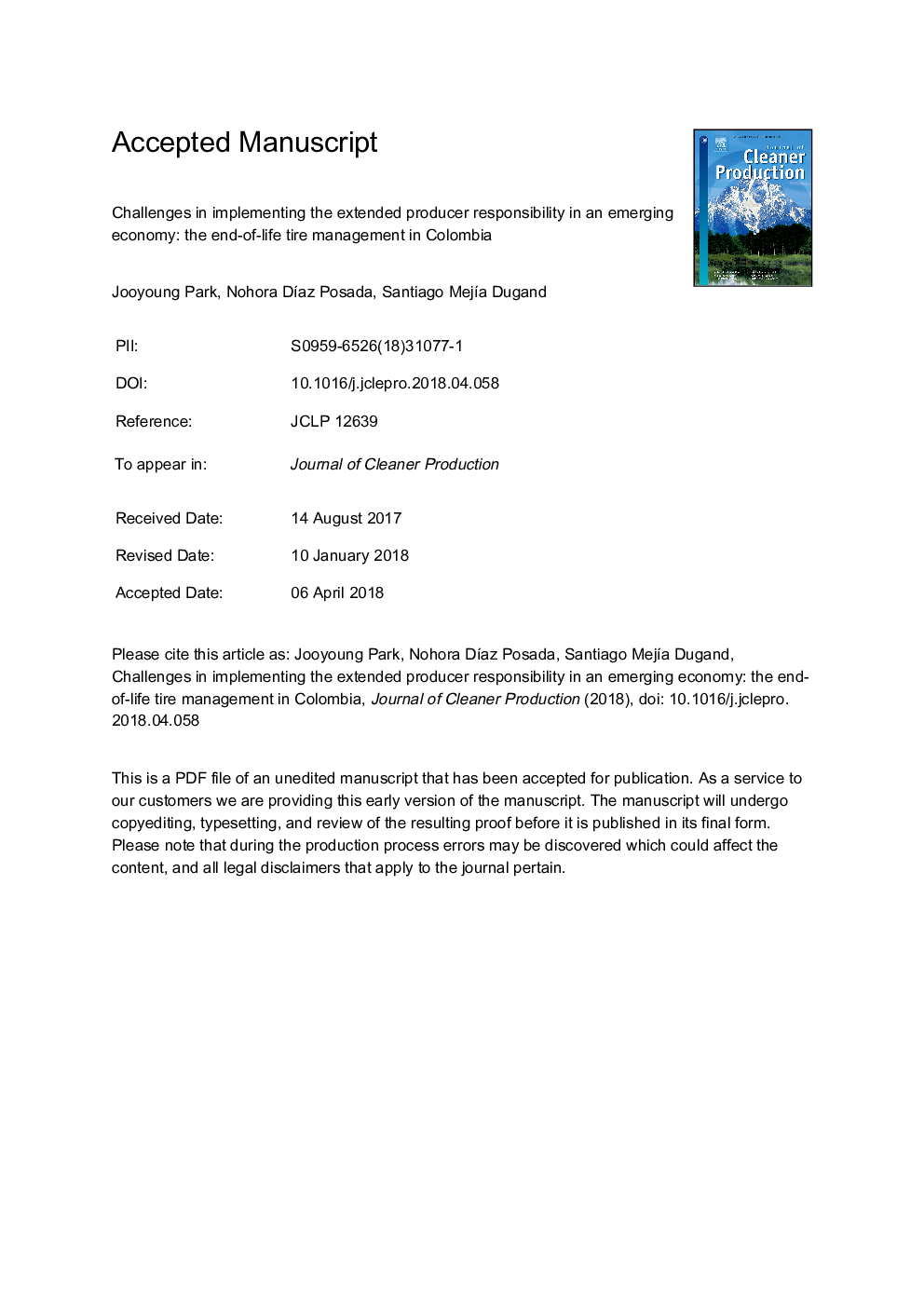| کد مقاله | کد نشریه | سال انتشار | مقاله انگلیسی | نسخه تمام متن |
|---|---|---|---|---|
| 8095274 | 1522064 | 2018 | 22 صفحه PDF | دانلود رایگان |
عنوان انگلیسی مقاله ISI
Challenges in implementing the extended producer responsibility in an emerging economy: The end-of-life tire management in Colombia
ترجمه فارسی عنوان
چالش هایی که در اجرای مسئولیت های توسعه یافته تولید کننده در یک اقتصاد نوظهور وجود دارد: مدیریت تایرهای پایان عمر در کلمبیا
دانلود مقاله + سفارش ترجمه
دانلود مقاله ISI انگلیسی
رایگان برای ایرانیان
کلمات کلیدی
مسئولیت تولید محرمانه، حکومت، کارایی، لاستیک پایان عمر، کلمبیا، اقتصادهای نوظهور،
موضوعات مرتبط
مهندسی و علوم پایه
مهندسی انرژی
انرژی های تجدید پذیر، توسعه پایدار و محیط زیست
چکیده انگلیسی
With increasing problems related to the management of end-of-life products, emerging economies have adopted an environmental policy principle - Extended Producer Responsibility (EPR), following the example of OECD countries. Colombia was one of the early adopters in Latin America, having introduced EPR in 2007 to manage several end-of-life products, such as pesticide containers, medicines, lead acid batteries, light bulbs, small batteries, computers, and tires. However, there has been no comprehensive investigation into how EPR has been applied in the context of Colombia. Using the case of end-of-life tires, this study aimed to provide an understanding about two aspects of the EPR system in Colombia: the governance structure and the performance in the end-of-life management. This study found that the Colombian EPR governance model imposes full financial and operational responsibilities on tire producers and importers, while it fails to incentivize other actors in the product chain to carry out their allocated tasks and responsibilities. As for the performance, the EPR system has increased the amount of tires collected over the last five years, but the level is low compared with other developed countries, and more importantly, it does not fully promote the recovery of values from tire waste. The analysis of the current situation in Colombia and lessons from other countries suggest that the effectiveness of the EPR policy would require the establishment of solid, but feasible targets, while allowing flexibility in meeting those targets. It would also benefit from the consideration of economic instruments, as well as establishment of complementary policies to promote innovation and strengthen the regulatory controls over the free riders and management of tire waste.
ناشر
Database: Elsevier - ScienceDirect (ساینس دایرکت)
Journal: Journal of Cleaner Production - Volume 189, 10 July 2018, Pages 754-762
Journal: Journal of Cleaner Production - Volume 189, 10 July 2018, Pages 754-762
نویسندگان
Jooyoung Park, Nohora DÃaz-Posada, Santiago MejÃa-Dugand,
